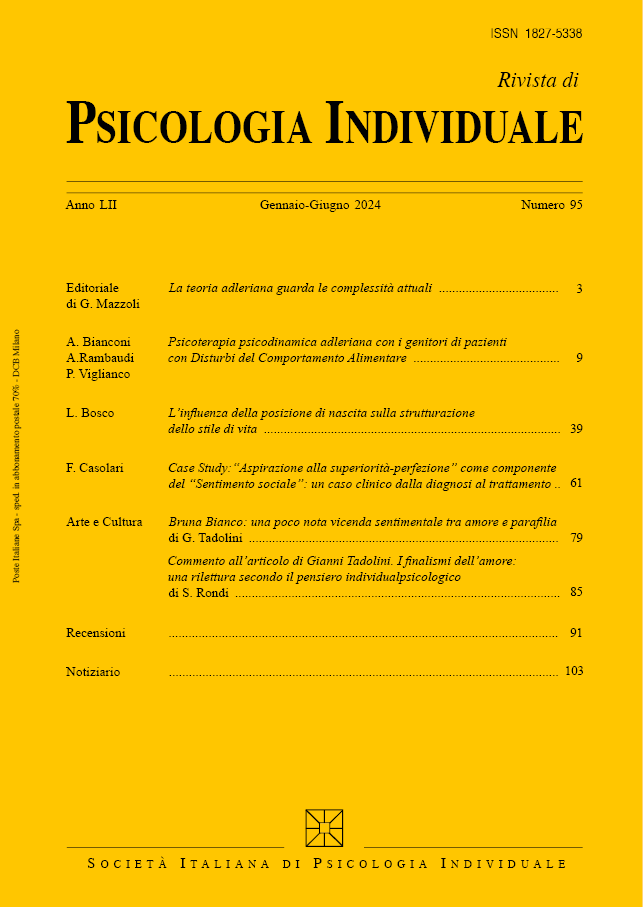Guilt in the neurotic personality: implosive technique and Adlerian analysis
Keywords:
active analysis according to ferenczi, the analyst as a therapeutic tool, vital tasks, rogers' empathetic understanding of the patient, fictions, insights, symptom language, stampfl's conditioning paradigm, psychotherapy as a social problem, escape reaction, transferece relationship, k. adler's maternal role of the anlayst, feelings of guilt, feelings of inferiority, neurotic symmptoms, von bertalanffy's open systemAbstract
The assumption of Stamfl's Implosive Therapy, that the neurotic symptom is equivalent, according to his “paradigm,” to a reaction of escape from the inferiority of guilt, fits perfectly into Adlerian theory which, according to von Bertalanffy, is an “open system.” The Adlerian analyst first identifies, using school techniques (present state, family, early memories, dreams, projective tests), the “hidden stimuli of Stampfl's conditioning paradigm.” By assuming a maternal role in the analytical relationship (Kurt Adler), he then brings about a profound emotional insight that deprives the language of the symptom of its value. This is made possible by their “knowledge of man” (Adler), which they have gained through their own analysis, their empathetic understanding of the patient (Rogers), and by considering the possibility of “active analysis” (Ferenczi), considering themselves a “therapeutic instrument” (Horney). In this way, therapy, a social problem like any other encounter, consolidates the sense of community to which it adapts the will to power expressed by neurosis, breaking the mental patterns (fictions) that prevent adaptation to the demands of life






